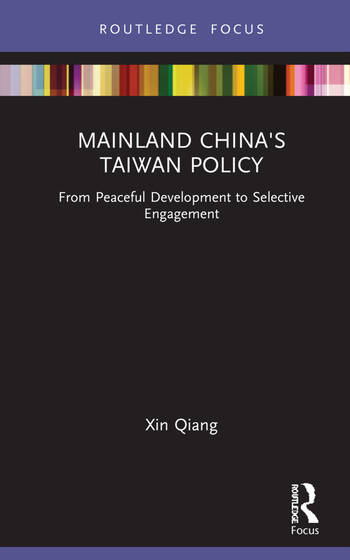
Qiang Xin, Mainland China’s Taiwan Policy: From Peaceful Development to Selective Engagement, London: Routledge, 2022
ISBN: 9780367756307
Book Description
The Taiwan issue has always been a core national interest of mainland China, which has steadfastly vowed to fulfill national reunification. This book provides a comprehensive and updated explanation of the strategic motivations, behavioral logic, and policymaking rationale of Beijing’s Taiwan policy. It will aid readers in predicting the future development of cross-Strait relations, reducing the risk of strategic miscalculations, and defusing potential geostrategic perils.
The book analyzes Beijing’s changing policy toward Taiwan during the Kuomintang and Democratic Progressive Party administrations. It explains the key driving forces for Beijing’s Taiwan policy in these different periods, which have displayed fundamental shifts from confrontation to cooperation and then back to confrontation. The book also delves into how the rising strategic rivalry between China and the US may influence Beijing’s Taiwan policy and the prospect of cross-Strait relations in the near future.
The book will be a useful reference to deepen intellectual understanding of Beijing’s broader security and diplomatic policies. It will also appeal to government policymakers who have a keen and vested interest in peace and security in the West Pacific.
Table of Contents
1. Introduction: The Turbulent Taiwan Strait
2. Peaceful Development: Mainland China’s Institutionalism-Oriented Taiwan Policy (2008-2016)
3. Selective Engagement: Mainland China’s Dual-Track Taiwan Policy (2016-)
4. Changes and Continuity in Mainland China’s Taiwan Policy
5. Conclusion: Navigating the Cross-Strait Turbulence
Author
Xin Qiang is the inaugural Director of the Center for Taiwan Studies and Deputy Director of the Center for American Studies at Fudan University, China. His research focuses on Taiwan, China–US relations, and maritime security issues.

